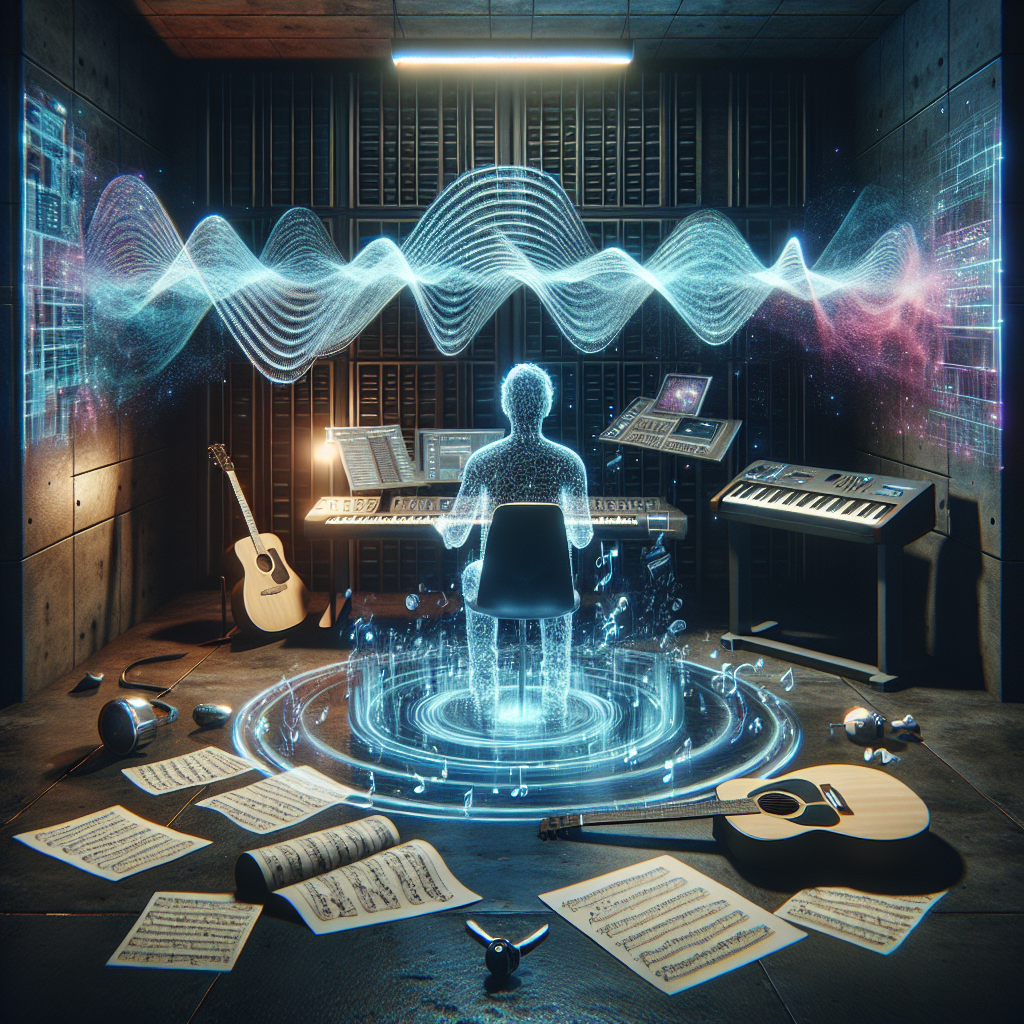In the evolving landscape of the music industry, artificial intelligence (AI) has become a pivotal tool, particularly in the process of completing unreleased songs. This innovative approach not only preserves the artistic intentions of musicians who may have passed away or moved on from certain projects but also offers exciting possibilities for music production and legacy preservation.
The Rise of AI in Music Production
The integration of AI in music isn’t entirely new, but its capabilities have significantly expanded in recent years. Technologies like machine learning algorithms can now analyze an artist’s past work, understand their unique style, and generate new content that aligns with their musical patterns. This process has been used to finish songs that were previously left in various stages of completion.
Case Studies of AI-driven Projects
One of the most notable examples involves the use of AI to complete Amy Winehouse’s unfinished songs. Researchers and musicians used AI to analyze her earlier works to produce music that resonated with her style, ensuring her legacy could continue in a respectful and innovative manner.
Similarly, AI has been used to create new works in the style of other legendary artists such as Jimi Hendrix and Nirvana, offering fans new material that remains true to the original artistry of these icons. These projects often stir debate about the ethical implications of using an artist’s style posthumously, yet they also show the potential of AI to bridge gaps between eras of music.
Technical Aspects of AI in Music
At its core, the technology behind using AI to finish unreleased songs involves several sophisticated processes. Audio separation technologies isolate vocals from instruments, while machine learning models are trained on the artist’s existing tracks to generate new music components that could have been envisioned by the artists themselves.
For instance, AI algorithms can suggest chord progressions, drum patterns, or even lyrics that fit within the stylistic confines of the artist’s work. This not only helps in creating music that sounds like it was genuinely produced by the artists but also respects their musical legacy.
Benefits and Challenges
The benefits of using AI in this context are manifold. For families and estates, it offers a way to continue the artist’s legacy and produce new revenue streams. For fans, it provides new music from beloved artists who are no longer able to produce work. However, the challenges cannot be overlooked. Ethical questions about consent and artistic integrity are at the forefront of debates surrounding this technology. Moreover, the potential for misuse or over-commercialization poses significant risks to the preservation of an artist’s legacy.
Future Implications and Considerations
As AI continues to advance, its role in creative industries is likely to grow. In music, this could mean more sophisticated and respectful ways of handling unfinished works. However, the industry must navigate these waters carefully, balancing technological possibilities with ethical constraints.
Stakeholders, including artists, producers, and legal experts, need to establish clear guidelines on the use of AI in completing unreleased songs. This includes consent mechanisms, transparency about AI’s role in the production process, and ensuring that any AI-generated music aligns with the original artist’s vision and wishes.
Final Thoughts
The use of AI to finish unreleased songs opens up a realm of possibilities for the music industry, offering new ways to celebrate and extend the legacies of musicians. As we look forward, the collaborative interplay between human creativity and artificial intelligence will likely redefine the boundaries of musical creation, offering both challenges and extraordinary opportunities.
In the end, as we harness these technologies, we must remain vigilant in preserving the human touch that lies at the heart of true musical artistry.


